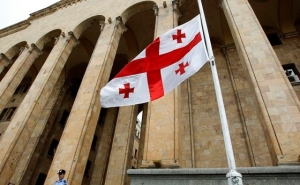
The organization “Young Barristers” responds to the discussion about the draft of the legislative proposal submitted to the parliament and notes out, that the planned legislation, which aims to give the opportunity to the state to fully carry out their duties in the pandemic situation, doesn’t contradict the principles of the European Convention for the Protection of Human Rights and Fundamental Freedoms and the draft itself precludes to artificially create temporary restrictions or the misuse of governance.
“Young Barristers” got acquainted with the draft legislative proposal and the explanatory card, which clarifies the content and legal side of “isolation” and “measures for the quarantine”. In particular, based on the term “isolation” we see statement about “the separation of a person who is possible infected” and, while defining the term “quarantine measures”, it is stated, it also means the regulation of the work of public institution, relocation, property, labor, professional or economic activities, illegal migration, international protection, the social activities of individuals for the purpose of gathering together, differently from the law presented, in order to protect the health of the society. According to the current law, the rule of isolation and quarantine is established by the Government of Georgia or by the specific Ministry determined by the Government. Based on the draft of legislation, the entities, entitled to make decisions remain the same, but the following data are specified: “The rules of isolation and quarantine, as well as, the administration of the public entities and the institutions in the government, as well as the provision of public services, shall be established by the Government of Georgia or by the specific Ministry. The relevant quarantine measures, shall be determined in accordance with this rule.
Based on the organization’s assessment, the actions and the decisions of the Government of Georgia or the specified Ministry can’t be uncontrolled and the draft doesn’t change the standard for each such decision, which is determined by the Law of Georgia on Public Health. In particular, based on the Article 11 (3) of the law, the decision on applying the isolation and/or quarantine measures on the individual is done by the decision of the Public Health Service in accordance with the principles of the European Convention for the Protection of Human Rights and Fundamental Freedoms. The existing standard in the law remains the same, on top of that, right to appeal the decision against him or her, as well the substations of it, will be done in accordance with the rules established by the European convention.
Based on the “Young Barristers’” explanation, it is impossible to argue whether the changes are contrary to the principle of proportionality, since the degree of interference or restriction in each case is related with the danger and extent of the problem. Therefore, in order to protect the human rights and the public health, the state must have an effective mechanism to make such decision, which, in each case, can’t be written in the law, but regulated by the Government’s act.
The organization states out, that the Parliament, along with the amendment to the Law on Public Health, shouldn’t change the rules in the Criminal Procedure Law in a speeded-up way, which, aims, to in case of danger of spreading the pandemic situation, the court hearings will be held remotely, using the electronic means of communication. In case of holding remote court hearing, the sides have no right to refuse to attend it, on the grounds of the desire to physically attend it.In that case, the practice shows, that the persons, under the legal proceedings, were left without the right to protection. The right to protection is guaranteed based on the constitution and the principle of a fair trial. Under a pandemic or dangerous epidemic situation, based on the quarantine measures, the representatives may appear in the different territorial units and find themselves limited to the evidences and case files. Consequently, that legislative initiative requires the professional discussion with the parties involved in the process, making the reconciled position, therefore in a speeded manner considering it is not justified.





